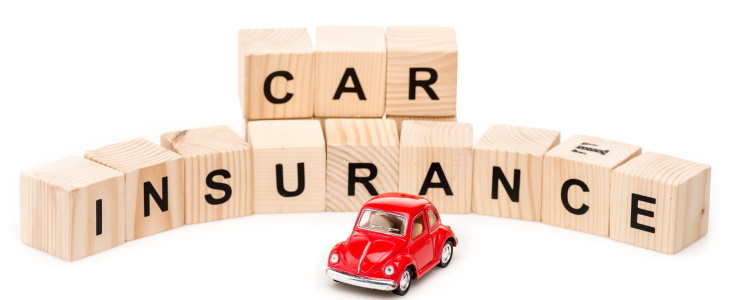When you’re financing a used car, you’re required to have full coverage auto insurance. But is there a date that you’re required to have it in place? Here’s what you need to know.
Buying a Car and Auto Insurance
When you finance a used vehicle, lenders require you to have full coverage car insurance before you can drive it off the lot. In almost every state, even if you aren’t financing a vehicle, it's required that any car on the road must have insurance coverage that meets state standards. In many states, you can’t register a vehicle without insurance, either.
If you’re trading in your old car at a dealership to help with a down payment requirement for a bad credit auto loan, or to lower the amount you’re financing, you can typically transfer your current car insurance policy to the new vehicle.
This can be done rather quickly if you contact your insurance company and let them know the make, model, and VIN number of the new car that needs coverage. In many cases, you can set a date that the transfer needs to take place. If they won’t take the information over the phone, your dealer should be able to fax the vehicle information to your insurance company.
Go to the Dealership Prepared
Before you buy your next car and even if you’re trading in a vehicle, but especially if you aren’t, it's worth it to shop around for auto insurance prices beforehand. Many insurance companies can give you quotes over the phone or online, and some offer discounts for signing up for coverage online or for paperless filing. Take your time to compare rates and coverages, and pick the best policy that fits your needs and budget.
While you’re shopping for your next car, take time to look at the price of insuring various models. Insurance rates vary between makes and models – some vehicles are more expensive to insure than others. Used and new cars usually also vary in coverage costs.
Get quotes from a few different auto insurance companies. Just remember that full coverage policies are required for all financed vehicles, and these policies are more expensive than liability coverage (sometimes called PLPD).
If you’ve chosen a car insurance policy but the underwriting process isn’t complete, you should be able to get an insurance binder so you can take delivery of your vehicle.
Car Insurance Binders
If you’ve found the used car you want from a dealership, chosen an insurance company, and you need the vehicle right away, there’s a way to drive it off the lot with temporary proof of auto insurance. It’s called an insurance binder.
An insurance binder serves as temporary coverage until a policy is issued for a car. The expiration date of a binder can vary, but they typically expire anywhere from 30 to 90 days.
Borrowers typically get a binder so they can go to the dealer with proof of insurance and drive their newly financed vehicle off the lot. Binders are issued by insurance companies while the insurance company verifies a policyholder’s information during the underwriting process.
Make sure you receive your policy and coverage starts before the binder expires – otherwise, your car won’t be covered. A financed vehicle must have full coverage auto insurance throughout the entire loan term. You may risk getting force-placed insurance added to your monthly loan payment by your lender if the car isn’t properly covered.
Force-placed coverage, also called lender-placed, is an auto insurance policy that’s tacked onto your monthly loan payment if your coverage lapses. These policies are typically more expensive than regular car insurance, since your lender likely won’t rate shop – they just want the vehicle insured.
The Bottom Line
When you finance a car, new or used, you’re going to need to get full coverage auto insurance. You’re required to bring proof of insurance to the dealership before you can drive your new vehicle off the lot. If you’re hoping to drive a new-to-you car off a dealer lot, and you’re looking for a dealership that can work with unique credit situations, we want to help.
There are dealers with special finance departments that are signed up with subprime lenders. These lenders help bad credit borrowers finance a vehicle that fits within their financial situation – and when these lenders set a budget for you, they also consider the cost of auto insurance. Here at Auto Credit Express, we know which dealerships work with bad credit lenders.
To get matched to a dealer with special finance options in your local area, simply fill out our free car loan request form.
















